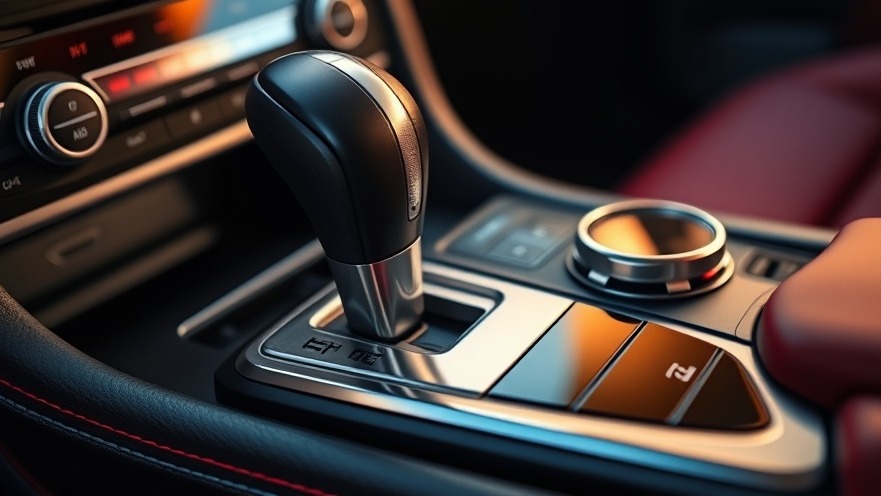
Understanding Slipping Transmissions: What You Need to Know
A slipping transmission can turn an ordinary drive into a nerve-wracking experience. It occurs when your vehicle struggles to stay in the right gear, creating a sluggish sensation that signals an urgent need for attention. Whether you're driving a manual or automatic transmission car, identifying the symptoms early on is crucial to ensuring your safety on the road.
Identify Delayed and Rough Shifting
Have you experienced a delay when shifting gears? It should be seamless! If your vehicle hesitates or jolts during this process, it could indicate a slipping transmission. This symptom can worsen over time, so if adding new transmission fluid does not fix the issue, it’s advisable to have a professional inspection. Early detection can save you from expensive repairs down the line.
Unusual Engine Revs Can Signal Transmission Trouble
When you press the accelerator and notice the RPMs climbing without a corresponding increase in speed, it’s a warning sign. This unhealthy spike, often exceeding 3,000 RPMs, typically points to transmission problems. Ignoring this could lead to major repair issues, and getting your car checked soon can help remedy the situation.
When Power Loss is Sudden, It's Time to Pay Attention
Your vehicle’s transmission plays an integral role in power distribution from your engine to the wheels. Sudden power loss while driving—particularly in quick accelerations or at stoplights—could be attributed to transmission slippage. This not only compromises performance but can also pose serious safety risks, especially during busy commutes.
Don't Ignore Dashboard Warning Lights
Modern vehicles are equipped with warning systems that alert you to potential issues. Pay close attention to the transmission warning light, which looks like a gear symbol, and any associated check engine lights. If these indicators stay illuminated after restarts, they typically signal serious transmission complications requiring immediate attention. Ignoring these signs can escalate problems significantly.
Listen for Unusual Noises
A slipping transmission often announces its presence with unusual sounds. If you notice a high-pitched whine or grinding noises while accelerating, these symptoms indicate that something is amiss. These sounds are not normal and serve as alerts that your vehicle might need a professional look.
Get Help Before It's Too Late
Recognizing the signs of a slipping transmission is key to maintaining vehicle performance and safety. Delays, unusual revving, loss of power, warning lights, and strange noises all factor into diagnosing issues that can escalate into costly repairs if disregarded. If you experience any of these symptoms, don’t hesitate! Contact your local auto repair shop to schedule a check-up.
Take Action Today for a Safer Tomorrow!
Maintaining your vehicle in good condition not only prolongs its lifespan but also ensures your safety on the road. If you suspect a slipping transmission, reach out to an experienced mechanic. Early detection leads to easier resolutions. Your road trips deserve a smooth experience—act today!
 Add Row
Add Row  Add
Add 




Write A Comment